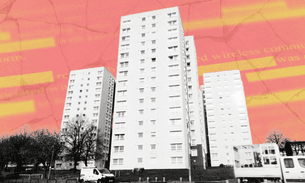
Massive losses by £65bn London-based Libyan investment fund
The Bureau Recommends an investigation by the Financial Times into the mis-management of a $65bn Libyan investment fund, based in London.
The fund’s assets have form a large part of the $160bn off-shore wealth, frozen as a result of sanctions but now being released by governments around the world.
But mis-management has greatly depleted the assets held, which are desperately needed for re-construction work in Libya.
In financial auditing documents obtained by the FT, drawn up by the financial services company KPMG in May 2010, it says that the fund, which is called ‘Libyan Investment Authority’ (LIA) was in deep disarray and unable to manage its ambitious investment strategy.
Interviews with former directors, bankers and Libyan officials of Mayfair fund attest that that mis-management, convoluted chains of investment and lack of opacity was rife. Many investments were run by a close-knit circle including a close friend of Seif al-Islam, the heir-apparent of Muammer Qaddafi, who had founded the sovereign wealth fund in 1997. Seif al-Islam had claimed not to have any involvement in investment decisions.
KPMG found that since its inception, the LIA had never completed audited accounts. Numerous documents were missing, at the time of the audit, and custodian and financial statements and investment sanctions paperwork often didn’t match up.
There are signs of tensions over how the fund is to be managed. To investigate the firm’s past dealings the NTC has appointed Mahmoud Badi, a former technocrat of Qadaffi’s regime, whilst former senior executives of the fund claim they are best placed to investigate.
During the many years it will take for oil production and revenues to return to pre-conflict levels, the LIA is likely to have a key role in financing re-construction in Libya.
Exactly how much money has been lost is not yet known, there are indications: at least $6.7bn had been placed in alternative funds, many of which recorded losses, mainly owing to high fees, which prompted concern at high levels in the fund.
The new chief executive of the LIA, Rafik al-Nayed, has said that addressing weak governance is his priority.
‘For us, the bar will have to be higher, because the Libyan people have been in the dark about what has been happening to their money, and they will want to know what’s out there. ‘
The full article can be read here.




